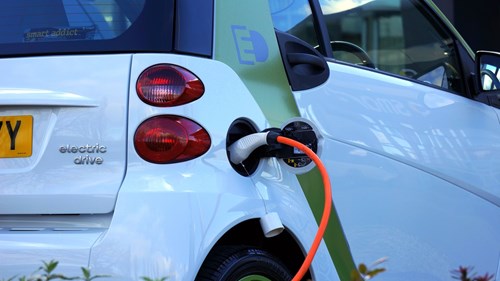The grant scheme for electric cars, vans and trucks has been updated to target less expensive models and reflect a greater range of affordable vehicles available, allowing the scheme’s funding to go further and help more people make the switch to an electric vehicle.
From March 18th, the government will provide grants of up to £2,500 for electric vehicles on cars priced under £35,000. This will mean the funding will last longer and be available to more drivers. Grants will no longer be available for higher-priced vehicles, typically bought by drivers who can afford to switch without a subsidy from taxpayers.
The number of electric car models priced under £35,000 has increased by almost 50% since 2019 and more than half the models currently on the market will still be eligible for the grant, including spacious family cars, such as the Hyundai Kona 39kWh and the MG ZS EV.
Government measures to encourage people to switch to electric vehicles are also working, with nearly 11% of new cars sold in 2020 having a plug. This was up from just over 3% in 2019 – and battery electric car sales almost tripled over that same period. The plug-in vehicle grant scheme was renewed last year, with £582 million of funding intended to last until 2022 to 2023.
 Transport Minister Rachel Maclean said: "We want as many people as possible to be able to make the switch to electric vehicles as we look to reduce our carbon emissions, strive towards our net-zero ambitions and level up right across the UK. The increasing choice of new vehicles, growing demand from customers and rapidly rising number of chargepoints mean that, while the level of funding remains as high as ever, given soaring demand, we are refocusing our vehicle grants on the more affordable zero emission vehicles – where most consumers will be looking and where taxpayers’ money will make more of a difference. We will continue to review the grant as the market grows."
Transport Minister Rachel Maclean said: "We want as many people as possible to be able to make the switch to electric vehicles as we look to reduce our carbon emissions, strive towards our net-zero ambitions and level up right across the UK. The increasing choice of new vehicles, growing demand from customers and rapidly rising number of chargepoints mean that, while the level of funding remains as high as ever, given soaring demand, we are refocusing our vehicle grants on the more affordable zero emission vehicles – where most consumers will be looking and where taxpayers’ money will make more of a difference. We will continue to review the grant as the market grows."
The plug-in car grant was introduced 10 years ago to stimulate the early market for zero emission vehicles. Since 2011, government has provided close to £1.3 billion in plug-in vehicle grant funding to bring ultra-low emission vehicles onto UK roads, supporting the purchase of more than 285,000 vehicles.
The government is also investing more than £15 billion of new money in alternatives to cars, including:
- £3 billion for buses
- £2 billion for cycling
- more than £4 billion for local transport in cities
- £5 billion for enhancements to the rail network, including electrification and reopening lines closed under the Beeching cuts
More affordable batteries mean that manufacturers can increase the range of the vehicles, including the VW ID.3 Pro (from £32,000 RRP) with a 263-mile range – more than the distance between London and Middlesbrough. This is more than 3 times the typical range available when the plug-in car grant first launched in 2011, thanks to steep falls in battery costs.
As the market develops even further, we expect further price reductions in electric vehicles.
About the UK Department for Transport
 The UK Department for Transport (DfT) work with our agencies and partners to support the transport network that helps the UK’s businesses and gets people and goods travelling around the country. We plan and invest in transport infrastructure to keep the UK on the move. DfT is a ministerial department, supported by 24 agencies and public bodies
The UK Department for Transport (DfT) work with our agencies and partners to support the transport network that helps the UK’s businesses and gets people and goods travelling around the country. We plan and invest in transport infrastructure to keep the UK on the move. DfT is a ministerial department, supported by 24 agencies and public bodies




Comments
There are no comments yet for this item
Join the discussion